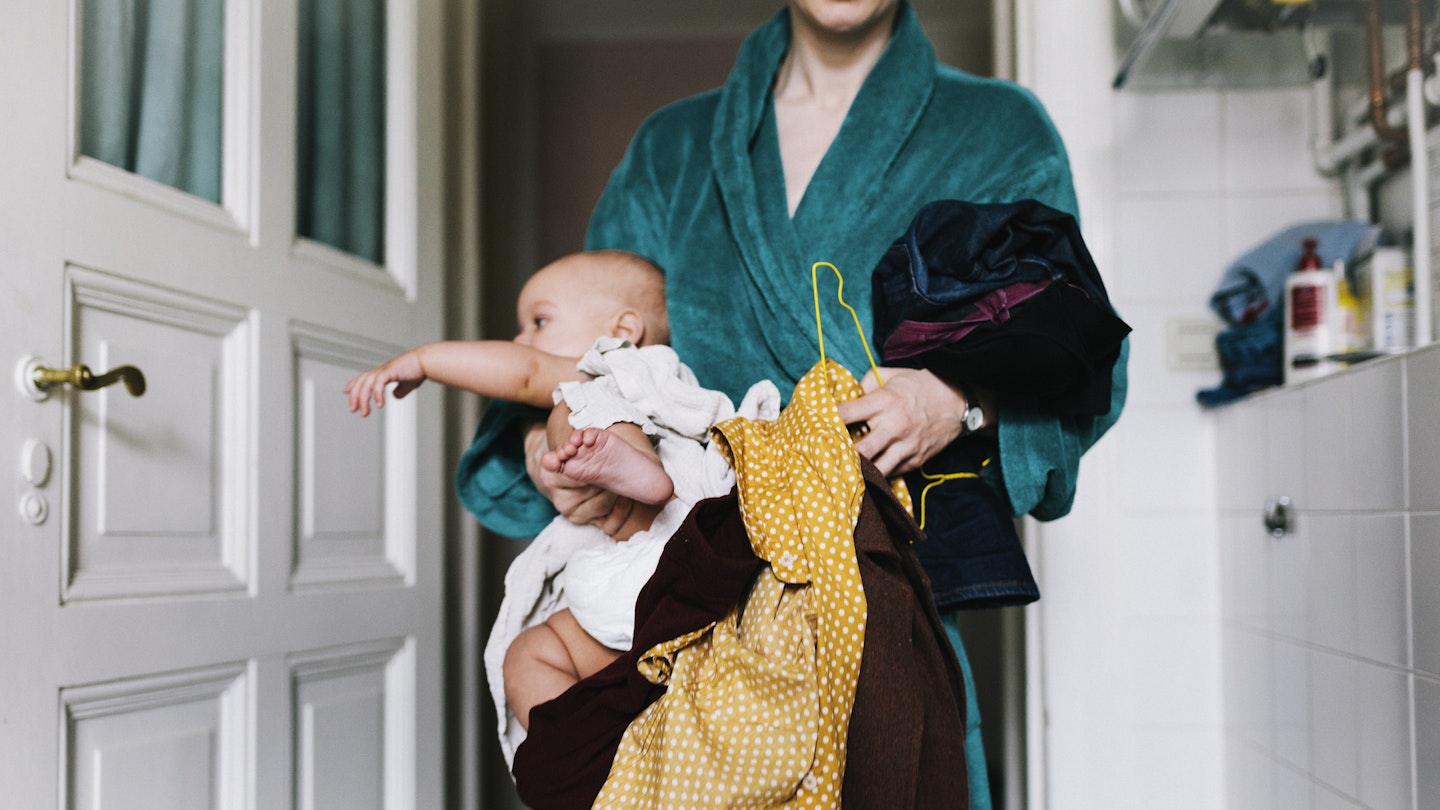I don’t remember where I was planning to go when I shut my front door behind me and started walking down the street – the local coffee shop, perhaps, or the supermarket. All I remember is the blind panic I felt when I realised, five steps in, that something was missing.
The baby! How could I have forgotten her?
At the time, I blamed it on the delirious state I was in – I hadn’t slept more than an hour at a stretch since the birth, two weeks earlier. But now, many years later, I think it was the identity crisis I experienced during maternity leave that triggered this break for freedom.
I was 37 when I became a mother – a good five years older than most of my friends in London. I'd spent the first half of my thirties living in New York, working 14-hour days and dabbling in the city’s dating scene. Dating was fun for a couple of years in a Sex and the City sort of way, but I knew I wanted children, and the multiple-dating and ghosting began to wear thin as my mid-thirties approached.
New York is the ultimate hustle city and I embraced it wholeheartedly. I threw everything into work: I wore it as armour, protection against the baby spam from London; the photos of birthday parties and nursery graduations, the peal of the playground on a Sunday phone call – it was consolation for what felt like an echoing hole in my life.
Perhaps I shouldn’t have been surprised that when my daughter arrived, my career was so much a part of my identity that I barely recognised myself without it.
I’d been a travel editor: now, my world had shrunk to my four walls and the streets around them. I loved my baby, her newborn smell, her smiles; watching my boyfriend pick her up and dance her around the kitchen. Most of the time I remember feeling content – the missing pieces of my life had slotted into place.
But there were also times when I felt trapped; when, despite telling myself I had no business feeling that way when I had a beautiful baby I loved and had longed for, who had arrived when I had almost given up hope, I sometimes felt bored. I was unbelievably privileged with my supportive partner and 12 weeks of paid maternity leave – 12 more than I would have had in America – but I missed my old life, its freedoms and spontaneities. I missed my job – the sense of achievement, the approbation I’d derived from it – I worried that my maternity cover would be better at it than I had been.
I wondered, as I changed another nappy or put a bottle in the steriliser, where the woman who had led a team, given travel advice on breakfast TV, sauntered through Manhattan as if she owned it, had gone, and whether she’d come back.
I didn’t tell anyone how I was feeling, though. I was honest about the socially acceptable struggles: the bone-crushing exhaustion, the sore nipples. But I kept quiet about the existential, who-the-hell-am-I-now stuff.
Three years later, I started writing my first novel, Hush. The idea came from conversations I’d had with friends in New York during the Peter Pan dating years. We’d talked about alternative routes to motherhood: egg freezing, sperm donation, adoption. In the end, I met the love of my life on the internet two weeks after I moved back to London. But I often thought about those conversations and the direction things might have taken – and how much more challenging it would have been to raise a child on my own.
From this came the character of Stevie, a woman who decides in her late 30s to have a baby using a sperm donor but finds the experience completely at odds with her expectations and former life – and wonders what she might do to escape. My early bolt for freedom ended up inspiring a pivotal scene.
I’d hoped Hush, which comes out in paperback this week, would spark conversations about the realities of early motherhood, and it has. I’ve been inundated with messages from women who relate to Stevie, the push and pull of motherhood she experiences and her inability to reconcile her old and new lives. ‘Stepping from a fulfilling career to maternity leave felt like whiplash,’ one reader told me, and I think it's a pretty accurate description.
My children are now eight and six. They’re the funniest, most spirited girl and boy imaginable and the best company. Unlike Stevie, I did feel intense love for them when they were born, but it has grown. Watching them develop personalities, weave words together, learn to read and ride bikes, is pure joy, but it's happening too fast. I wish I could shrink them and do it all over again.
Meanwhile, I’ve swapped the office for freelancing, which means less money but more time at the school gates. The house is always messy, the laundry is piled to the ceiling, and we eat a lot of pesto pasta, but I wouldn’t change it. Still, I get misty-eyed when I think about New York and the six years I spent there. And from time to time, I miss being able to throw on a jacket and walk down my street without a backward glance.
